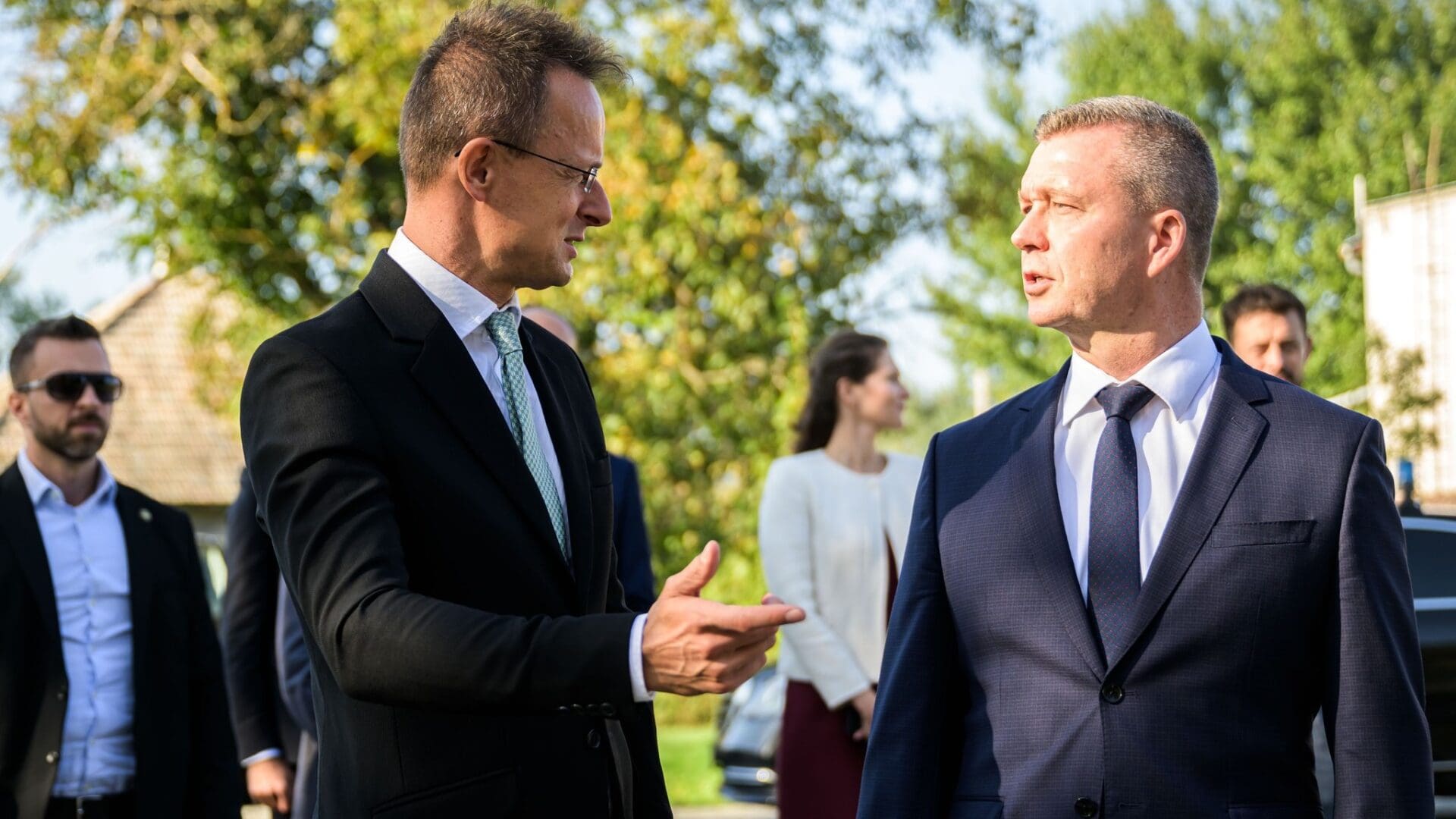Hungarian Foreign Minister Péter Szijjártó took part at the the opening of a new border crossing point between Slovakian Nagygéres (Veľký Horeš) and Nagyrozvágy in Hungary, marking the establishment of the thirty-eighth such crossing between the two countries.
In his address delivered at the opening ceremony, attended, among others, by Rastislav Trnká, Chairman of the Košice (Kassa) Self-Governing Region, Krisztián Forró, president of the Slovakian ethnic Hungarian party Alliance (Szövetség), and Nagygéres Mayor Zoltán Pál, Minister Szijjártó emphasized the unique circumstances of living along a border. He noted that
borders may either separate or connect communities.
He pointed out that the ease of crossing the border plays a pivotal role in shaping the quality of life for those living alongside it. This accessibility depends on factors such as good intentions, compliance with regulations, and the acceptance of passports or ID cards for travel, he underscored.
Minister Szijjártó highlighted that Hungary and Slovakia share an extensive border, spanning 654 kilometres. He noted that this border facilitated a record-breaking 17 billion euros in trade last year. Consequently, both governments consider it a strategic imperative to increase the number of border crossings. A greater number of crossings benefits not only Slovakia and Hungary but also the citizens on both sides of the border.
The minister recalled that during the 2010 change of government, there were twenty-two border crossings between the two countries. Today, that number has risen to thirty-eight, and with the inauguration of two new Ipoly River bridges by the end of this year, the total will reach forty. Since taking office, the governments of Hungary and Slovakia have jointly opened sixteen border crossings, highlighting their commitment to enhancing connectivity.
Regarding the newly inaugurated road connection, financed at the cost of some 1.3 billion Hungarian forints, minister Szijjártó emphasized that it rectifies an unjust situation. The previous 21-kilometre detour, taking approximately half an hour, has been significantly reduced to just a few kilometres and minutes. This development underscores the excellent cross-border relations and efficient utilization of available European Union funds, he noted.
Szijjártó also criticized the withholding of EU funds by Brussels, which has caused significant losses and missed opportunities for Hungary. He expressed dismay that
some individuals in Hungary not only support this but also actively promote and advocate for such actions.
Concluding his remarks, Szijjártó highlighted the strategic significance attached by both Budapest and Bratislava to developing bilateral relations. He noted that past years had witnessed periods of hostility and animosity between the two nations, but these have since evolved into a successful era of cooperation. Hungary and Slovakia have collaborated on important issues, such as jointly preventing the imposition of mandatory EU migrant quotas, and both countries have contributed to each other’s economic growth. The minister called for the preservation of this positive relationship and its further strengthening.
Szijjártó also touched on the upcoming Slovak parliamentary elections, expressing hope that Slovakia’s future government will prioritize the development of cooperation with Hungary.
He encouraged all members of the Hungarian minority in Slovakia to participate in the Slovak parliamentary elections,
stressing the opportunity to support a unified Hungarian party with a real chance of parliamentary representation.
Following the ceremony, Minister Szijjártó held talks with Krisztián Forró, and assured him of the unwavering support by the government of Hungary of the Hungarian ethnic community in Slovakia, including the continuation of the Uplands Economic Development Programme, which provides financial assistance in the value of 43 billion forints to close to 4000 enterprises in the Hungarian-inhabited regions of Slovakia. The minister and the Alliance President also visited the new facility of the Lebeco Bakery in Gúta (Kolárovo).
Related articles:
Sources: Hungarian Conservative/KKM/MTI








